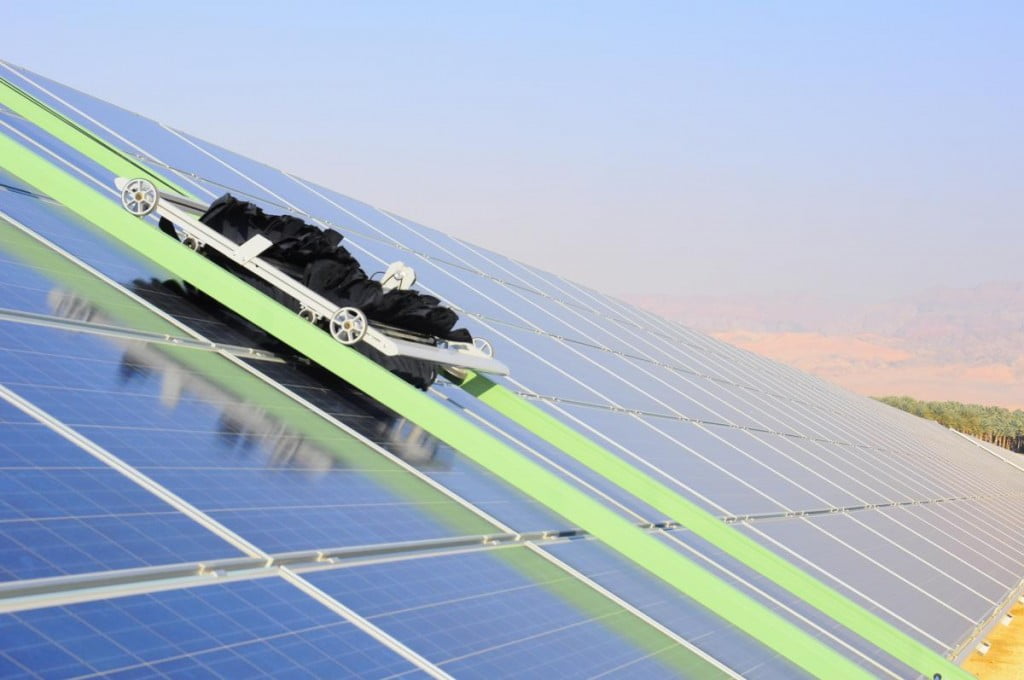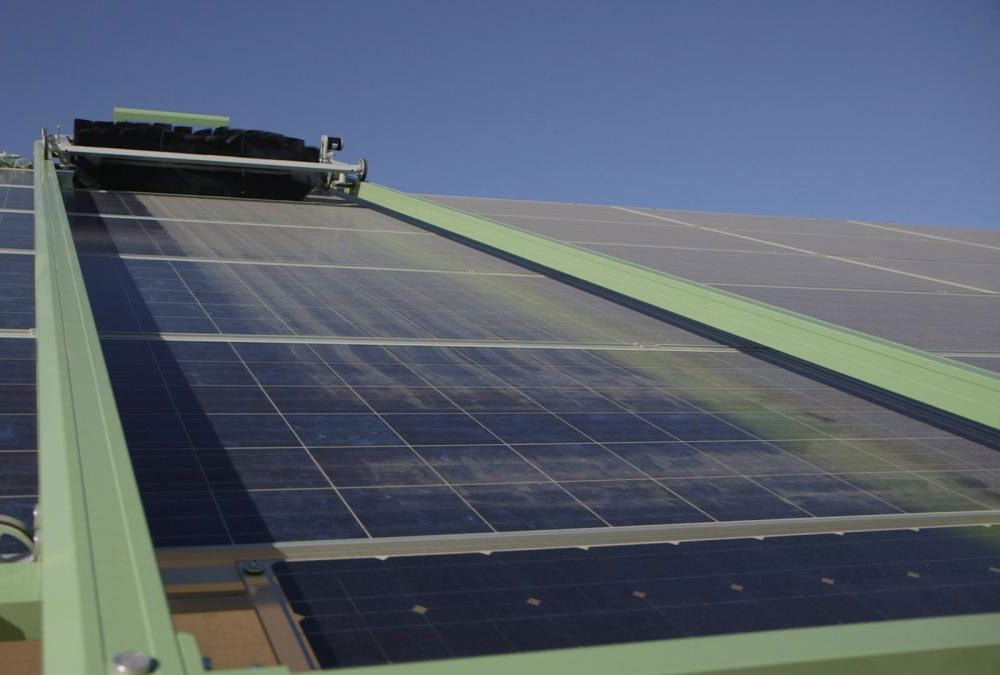Amid the prospect of cheap natural gas for electricity production, thanks to the major gas finds off Israel’s coast, demand for solar energy here has dulled. But this week, solar got a big boost as the Kibbutz Ketura solar park, jointly owned by Siemens AG and solar energy pioneer Arava Power, became the world’s first autonomously-cleaned solar energy production facility.
Each night, the 20-acre facility is cleaned by 100 Israeli-made robots, which brush and clean the hundreds of solar panels, generating 9 million kilowatt hours of electricity per year. It’s a technical breakthrough, said Eran Meller, CEO of Ecoppia, which built the robot cleaning crew, that could encourage more use of solar power.
Related articles
- How Going Solar Can Earn You Some Extra Income
- Researchers In Israel Announce A Revolutionary Alternative To Fuel
Solar-produced electricity contributes just a small amount of the approximately 60 billion kilowatt hours of electricity that Israel uses each year, but the government has some ideas about how to change that – beginning with its own “house.” Earlier this year, the Knesset announced a new project that will make Israel’s parliament “the greenest in the world,” according to the Energy and Water Resources Ministry. Among other things, the project will entail installing 4,500 square meters of photovoltaic panels on the roof of the Knesset building, generating all the power the building needs to function, and then some. According to Energy and Water Resources Minister Silvan Shalom, “the Green Knesset project will be a source of pride for Israel and will inspire other countries.”
Cleanliness – or a lack of it – has proven to be one of the biggest impediments to wider adoption of solar energy. Most solar energy farms are located in deserts (as is Kibbutz Ketura, which is in Israel’s southern Arava desert) where the sun is strong, and the spaces are wide open. Both are important factors to take into consideration when building a solar energy farm, which consists of hundreds or thousands of solar panels.
Besides a lot of sun, however, deserts have lots of dust, and as that dust settles on the solar panel collectors, it reduces the panels’ efficiency – by as much as 35%, said Meller, in a process called “soling.” To clean them, park managers use water, a very scarce commodity in the desert. “Due to the expense of traditional, labor-intensive, water-based cleaning, Ketura Sun’s solar panels were only cleaned some nine times a year,” he said. “This manual panel cleaning would take up to five days, during which time the field operated sub-optimally and work crews endangered sensitive equipment. In the interim between cleaning cycles, the park suffered significant electricity production degradation due to soiling.”
This article was first published on The Times of Israel and was re-posted with permission. To continue reading this article on their site, click here.
Photos: courtesy
Related posts

Resilient And Nutritious New Plant-Based Milk Aims To Make A Splash

Chocolate From Cultivated Cocoa Comes Without Environmental Toll

Plastic Fantastic: Startup Takes PVC Back To Its Crude Oil Roots





Facebook comments